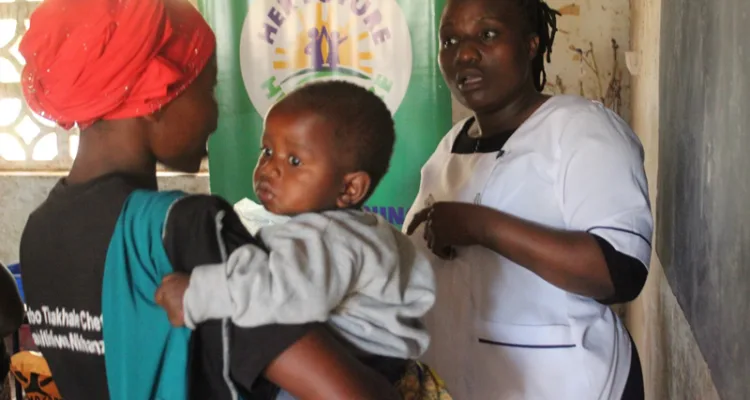
Adolescent girls and young women living in the areas of Traditional Authorities Amidu and Kalembo in Balaka District say they are now aware of the benefits of using contraceptive methods to avoid unintended pregnancies as well as sexually Transmitted Infections (STIs).
A range of factors have for a long time contributed to low uptake of family planning methods in these areas, among them being limited comprehensive sexuality education, and prevailing myths and misconceptions associated with contraceptive use.
Over the years, there has been a deep-rooted culture of early pregnancies which eventually leads to child marriages-a development which perpetuates poverty in the communities.
To strengthen sexual reproductive health and rights among adolescents and young women aged 10-24, the Centre for Alternatives for Victimized Women and Children (Cavwoc) and the Family Planning Association of Malawi (Fpam) joined forces to help change the narrative.
With funding from Global Affairs Canada (GAC) through Oxfam in Malawi, the organizations have been running a project dubbed “Her Future Her Choice” which has equipped adolescents with knowledge on their sexual reproductive health and rights, gender-based violence apart from equipping them with various life skills to help them make informed decisions about their lives.
Cavwoc in partnership with Fpam and Balaka District Health Office conducted a two-day-long awareness on the use of contraceptive services and products as well as gender-based violence prevention with adolescent girls and young women.
Esnath Mbera, 24, from Traditional Authority Amidu praises the “Her Future Her Choice” project for being a beacon of hope among her fellow youths in her area.
“Before the project, it was against our community standards for adolescent girls and young women to openly seek contraceptive methods,” she said.
“Even our parents would not allow us to use family planning methods because of various myths and misconceptions surrounding contraceptive methods. As a result, we were left vulnerable to unintended pregnancies and STIs,” Esnath added.
She further said the project has also enhanced linkages between adolescents and health service providers.
“We are now accessing client-centred care including comprehensive and affordable contraception methods but also most importantly, the health workers help us to make informed healthy decisions about our bodies, lives, relationships and behaviours,” she added.
Concurring with Esnath, group village headman Hindahinda credits “the Her the Future Her Choice” project for helping in addressing the problems of early teenage pregnancies and GBV.
“As local leaders, we are happy to see that there is a significant decrease in cases of teenage pregnancies and gender-based violence in our areas. As leaders, we shall remain steadfast to ensure that there is continuity of such initiatives even if the project closes,” he said.
In his remarks, “Her Future Her Choice” project officer at Cavwoc, Right Well Nyirenda noted that it was encouraging to see the communities’ perception of the use of contraceptive methods has significantly changed.
“Despite various cultural factors and social norms, it is pleasing to learn that even community leaders are in the front line advocating their community members to embrace the usage of contraceptive methods,” Nyirenda said.
Senior Nursing Officer at Balaka District Health Office, Andrew Nkhoma observed that through the project, SRHR services have been enhanced in the district.
“On behalf of the district health office, I should commend the support that we have been getting from these partners. Issues of SRHR are our number one strategy to enable women and girls ofchildbeofchildbearhaveavee access to quality reproductive health services and rights,” said Nkhoma.
During the two-day-long awareness meetings, different contraceptive methods were distributed.
In Malawi, young people face several challenges about sexual reproductive and health rights. Some of the prevalent challenges include; limited access to SRHR education and services, limited access to contraceptives and information on usage among others.
The project seeks to empower adolescent girls and young women to secure their sexual reproductive health and rights in target regions of Ethiopia, Malawi, Mozambique, Zambia and Canada.
The project is being implemented in Lilongwe and Balaka Districts. In Lilongwe, the project is being implemented in Traditional Authorities Malili and Chimutu by Point of Progress and Fpam while in Balaka, the project is being implemented in Traditional Authorities Amidu and Kalembo by Cavwoc and Fpam.
Oxfam in Malawi collaborates with the Ministry of Health and other government ministries, departments and agencies, parliamentary caucuses and committees, civil society organizations and the media in delivering the project interventions.














